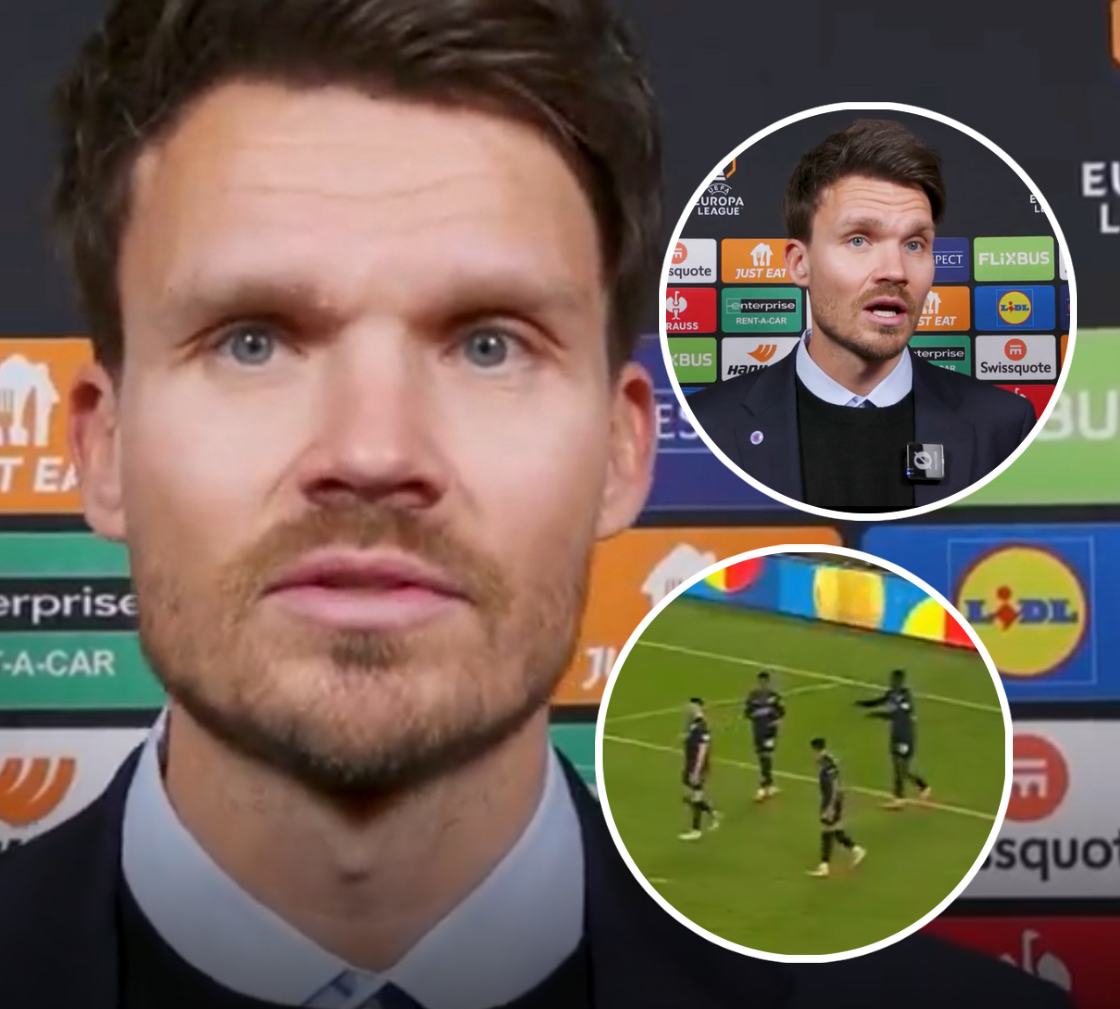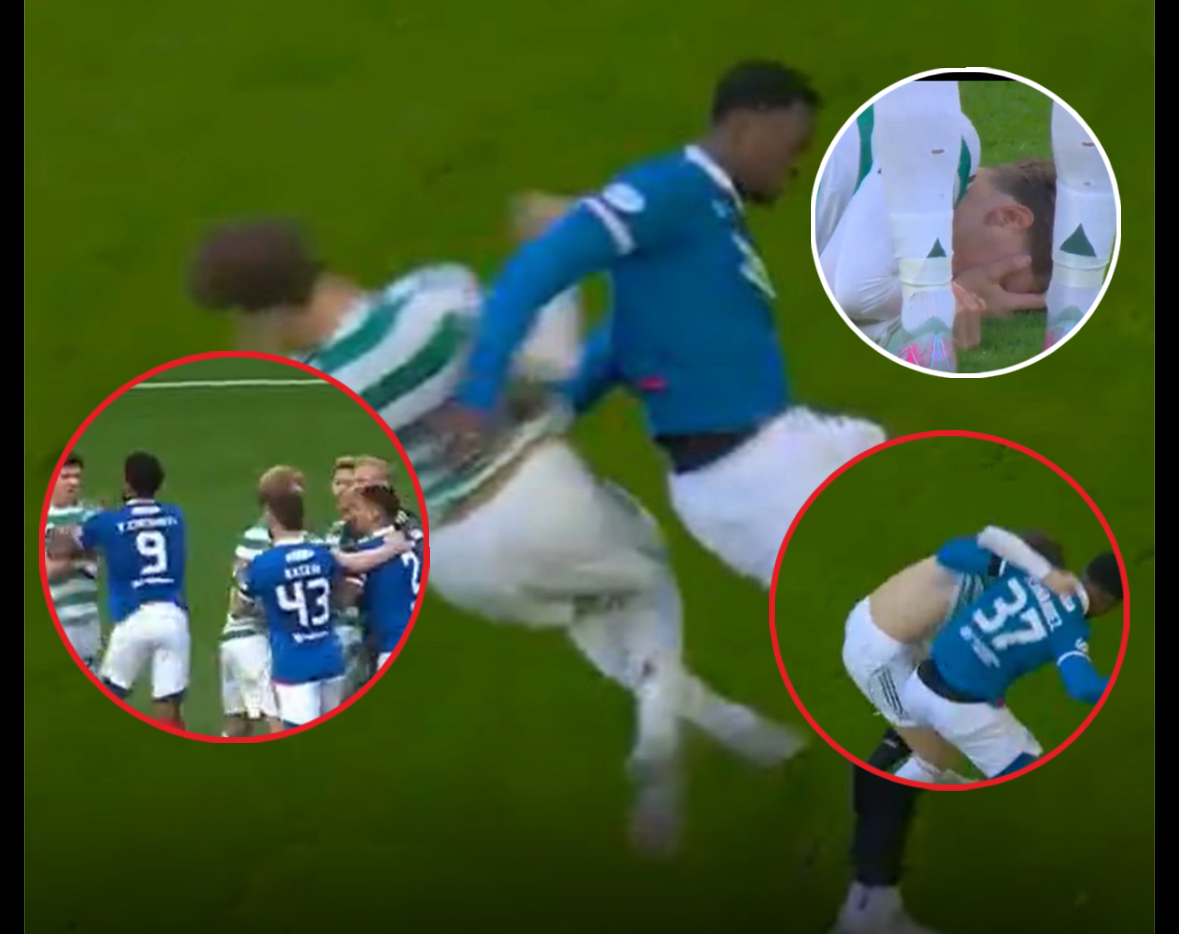DANNY RÖHL POST MATCH INTERVIEW HAS GONE VIRAL FOR ALL THE WRONG REASON,IT MADE RANGER FANS EVEN MORE ANGRIER..
In what looked like a routine media roll-out after one of the most chaotic managerial searches in recent Rangers history, Danny Röhl — the 36-year-old German brought in to steady the ship at Ibrox — has found himself at the centre of a social-media storm. Clips from his early interviews and press conferences have been shared, dissected and weaponised across fan pages, podcasts and mainstream outlets — and instead of calming nerves, they’ve made a large section of the support even angrier. The backlash says as much about the club’s fraught recruitment process as it does about Röhl himself.
The context: a messy search, sky-high expectations
Röhl’s arrival did not happen in a vacuum. Rangers’ managerial hunt in October 2025 was messy, high-profile and relentlessly leaked. The club canvassed big names, flirted with household favourites and watched several candidates either decline or be ruled out — leaving supporters frustrated and primed to judge whoever the board eventually appointed. When the announcement finally came, many fans felt they were getting a compromise candidate rather than a marquee, tried-and-trusted leader. That atmosphere — suspicion, anxiety and impatience — made any public appearance from the new boss a high-risk event.
Danny Röhl is no unknown: he comes with a modern coaching CV that includes roles at RB Leipzig, Bayern Munich and international setups, and he’d most recently been in club management in England. But pedigree doesn’t always translate into instant affection at Ibrox, and the moment he moved from “name on a shortlist” to “Rangers manager,” social media began to churn.
The interviews that lit the fuse
There are two media moments that have driven the conversation: his first RangersTV interview and his opening press conference. Both were intended to introduce Röhl’s philosophy, reassure fans, and stake a claim that he could deliver results. Instead, certain soundbites — clipped and shared — took on a life of their own.
In his RangersTV interview and the subsequent press engagements, Röhl stressed process: quickening the team’s play, unifying the squad, and earning supporters’ trust through results. Those are safe, predictable managerial talking points. But tone and timing matter. Supporters who felt let down by the club’s conduct during the hiring process were listening for anything that sounded evasive, aloof, or insufficiently ambitious — and some clips were interpreted that way.
Across fan channels the clips spread fast: micro-edits emphasising a perceived lack of fight, slow-motion rewinds on a phrase or two, and reaction videos that narrated the outrage. Within hours the “viral” label had been slapped on the footage, and pundits and ex-players began weighing in. Some sympathetic voices urged patience, insisting Röhl needed time; others were blunt — telling fans to be wary, or telling the board that they had handed the job to someone who might not be the right fit.
Why fans exploded — three overlapping reasons
- The hiring process primed anger — When supporters already feel ignored or misled by boardroom decisions, every media interaction becomes a test. Röhl’s public answers were parsed not just on content but on whether they matched the emotional needs of a fanbase that wanted decisive leadership. The process of leaks, whiffs of other preferred candidates and the sense that the club had dithered all fed a tinderbox.
- The viral effect amplifies small things — In the era of short clips and reaction reels, a two-second pause or a clipped sentence can be framed as arrogance or uncertainty. Supporters who wanted fire and categorical reassurance saw nuance; those already sceptical saw proof of mediocrity. Social platforms act like pressure cookers — little incidents become defining ones at speed.
- A fragile faith needs more than promises — Saying you will “earn trust through results” is sensible. Saying it while the club sits underperforming in the table, however, is risky. Fans want immediate signs: urgency, bravery in selection, and a clear blueprint. Anything that reads as “process-led” rather than “win-led” can trigger panic, and a handful of viral clips were interpreted through that lens.
The media playbook: why journalists helped stoke the flames
Tabloid and social reporters are not neutral bystanders here. Sensational headlines, piled-on reaction pieces and hot takes from former players keep the narrative turning. When ex-Rangers figures or pundits weigh in with provocative quotes or sweeping judgements, it validates and magnifies the fan anger. The result: a feedback loop in which fan clips feed commentary feeds more clips. Some outlets have framed Röhl as “not the fans’ choice,” and those labels have staying power in the click economy.
Is any of the outrage fair?
That depends on your perspective.
From a rational coaching standpoint, Röhl’s comments are cautious and expected: emphasise long-term work, avoid sweeping promises, and acknowledge the need to earn trust. Many top managers take precisely this tone on arrival — it’s sensible management of expectations.
From an emotional standpoint, arriving into a club that has seen a chaotic recruitment saga and early poor results means the manager must overdeliver on presence and galvanising rhetoric. A low-key, process-focused message can be read as insufficient — even if it’s professionally correct.
So while some outrage is disproportionate and fed by social-media rage dynamics, it’s also understandable given the emotional investment of the supporters. That complexity is what makes the controversy sticky: it’s both performative and legitimate.
Where this could go — three scenarios
- Röhl wins games and fans calm down. The simplest solution. If the team starts picking up points and plays with urgency, the viral clips will be recontextualised as noise and the manager’s measured language will be seen as a sign of careful planning.
- The bandwagon turns into pressure. If results don’t improve, those same clips become evidence. Media narratives harden, boardroom patience thins, and the applause turns to calls for change — quickly. Given Rangers’ high expectations, patience is not infinite.
- A middle ground: time and incremental trust. Röhl could gradually win buy-in with small, visible changes — team selection signals, new training intensity, smart substitutions. It’s a longer path but one that has salvaged many managers’ reputations in the past.
What the club should do (and fast)
There are smart, low-cost things the board can do to dampen the anger:
- Amplify access: more fan-facing content showing Röhl in the training ground, talking informally with players and fans, can humanise him. Fans respond to visibility and authenticity.
- Clear messaging: stop platitudes and start sharing specific short-term targets (e.g., “we’ll improve press intensity this month” rather than “we need to win”). Specificity reduces the room for misinterpretation.
- Manage leaks and narrative: tighten internal comms so the story doesn’t get rewritten every hour by anonymous sources and social editors. The recruitment mess left a credibility deficit — rebuild it quickly.
Verdict: viral clips matter less than the scoreboard — but they can change it
The outrage over Danny Röhl’s early interviews is as much a mirror of modern football fandom as it is a verdict on the man himself. Social media can amplify a misread syllable into a national story; the press can convert nervous reactions into overnight narratives. Yet in football, the ultimate currency remains results. If Röhl can translate his ideas into sharper performances and a coherent identity on the pitch, the viral “gotcha” moments will be forgotten.
Still, for now the new manager is walking a tightrope. One early bad result or another clip taken out of context, and the patience of a club used to front-foot leadership could evaporate. The stakes are not just Röhl’s reputation — they’re the board’s credibility, the fans’ faith, and the club’s season.
Röhl’s task is simple in description and fiendish in execution: show urgency, win, and make the fans feel included in the journey. If he does that, the social-media storm will die down. If he doesn’t, those viral clips will be replayed again and again — each time adding to the heat under his seat.
Sources and further reading: Reuters on Röhl’s appointment and priorities; The Guardian’s coverage of the messy managerial search; RangersTV clips and press conference footage; fan reaction on BBC/Instagram reaction posts; local reporting on the fallout from ibrox









Post Comment